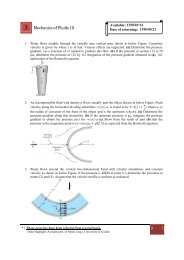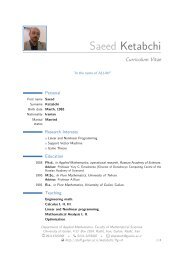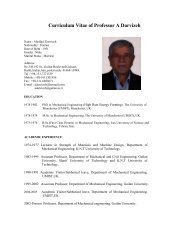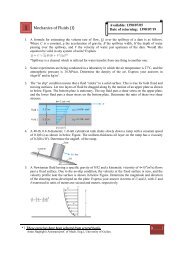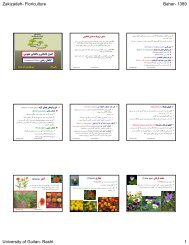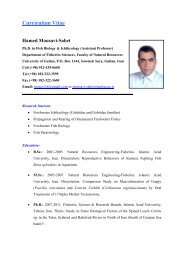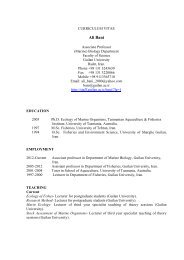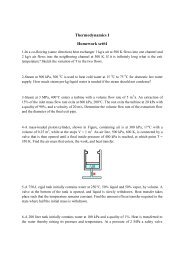Medical Tourism in Developing Countries
Medical Tourism in Developing Countries
Medical Tourism in Developing Countries
- No tags were found...
Create successful ePaper yourself
Turn your PDF publications into a flip-book with our unique Google optimized e-Paper software.
Promot<strong>in</strong>g <strong>Medical</strong> <strong>Tourism</strong> ● 99DiscussionDevelop<strong>in</strong>g countries that are able to conta<strong>in</strong> costs and offer low prices forquality services will draw more foreign patients than countries that cannot.Brazil is an example of a dest<strong>in</strong>ation that has high-quality medic<strong>in</strong>e and adeveloped <strong>in</strong>frastructure yet, because of high prices, it fails to attract the<strong>in</strong>ternational patients that flock to neighbor<strong>in</strong>g Chile and Argent<strong>in</strong>a.In fact, some hospitals <strong>in</strong> Sao Paulo charge higher fees than those charged<strong>in</strong> the United States and some health <strong>in</strong>surance companies are offer<strong>in</strong>g theirBrazilian patients the option of receiv<strong>in</strong>g care <strong>in</strong> the United States asthe price of treatment together with transportation is lower there than athome. 13Thus, keep<strong>in</strong>g costs of medical services low is crucial for susta<strong>in</strong><strong>in</strong>goneself as a competitive supplier. S<strong>in</strong>gapore has priced itself out of themarket and is currently offer<strong>in</strong>g medical tourism at rates comparable tothose <strong>in</strong> the West. Thailand has overtaken S<strong>in</strong>gapore as the lead<strong>in</strong>g healthdest<strong>in</strong>ation <strong>in</strong> Asia, but its supremacy is not guaranteed as India, althougha relative latecomer to the <strong>in</strong>dustry, is quickly catch<strong>in</strong>g up with both lowprices and high variety. As long as countries can ma<strong>in</strong>ta<strong>in</strong> low costs ofproduction and/or weak currencies, they have a w<strong>in</strong>dow of opportunity forthe development of medical tourism.Advantage II: Human CapitalIt has been said that many Western jobs are go<strong>in</strong>g overseas to countriessuch as India and Ch<strong>in</strong>a not because labor is cheap, but because it is highlyeducated. Accord<strong>in</strong>g to Prestowitz, “The virtually endless supply of labor,much of it skilled, <strong>in</strong> Ch<strong>in</strong>a and India, comb<strong>in</strong>ed with the negation of timeand distance by the Internet and global air delivery, will create a new andchalleng<strong>in</strong>g competitive environment for countries, companies and <strong>in</strong>dividuals[italics m<strong>in</strong>e].” 14 Accord<strong>in</strong>g to this view, education and skills arecrucial determ<strong>in</strong>ants of productivity s<strong>in</strong>ce the marg<strong>in</strong>al product of mach<strong>in</strong>esis higher when used with highly skilled human capital. Therefore, thosecountries that have more human capital, especially human capital appropriatefor the medical tourism <strong>in</strong>dustry, are at an advantage over those thatdo not. 15Furthermore, those dest<strong>in</strong>ation LDCs that tra<strong>in</strong> their own highly skilledworkers have a domestic source of human capital that is crucial <strong>in</strong> themedical tourism <strong>in</strong>dustry. In addition, if they also have an abundance ofunskilled workers to perform the vast array of unskilled tasks that are part



